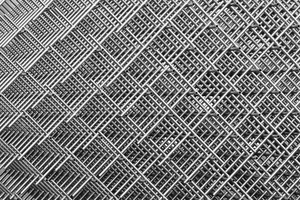Material Matters: The Importance of Quality Control in Core Materials Distribution
Cuerpo
In the realm of manufacturing, the quality of materials used in production can make or break the success of a product. This is especially true in core materials distribution, where the integrity and performance of materials directly impact the end product's quality, durability, and reliability. Let's delve into the significance of quality control in core materials distribution and why it's essential for ensuring customer satisfaction and business success.
Understanding Core Materials Distribution
Core materials distribution involves the sourcing, management, and delivery of essential materials that serve as the foundation of various products across industries. These materials, which include metals, plastics, composites, and chemicals, are critical components in the manufacturing process. Core materials distributors act as intermediaries between suppliers and manufacturers, ensuring that materials meet the required specifications and standards before being used in production.
The Importance of Quality Control
Quality control is a cornerstone of core materials distribution, ensuring that materials meet the required quality standards, performance criteria, and regulatory requirements. Effective quality control measures help identify and mitigate defects, inconsistencies, and deviations in material properties, ensuring that only high-quality materials are used in production. This not only safeguards the integrity of the end product but also enhances customer satisfaction and protects the reputation of the brand.
Maintaining Consistency and Reliability
Consistency and reliability are paramount in core materials distribution, especially in industries where safety, performance, and reliability are critical considerations. Distributors implement rigorous quality control measures to ensure that materials are consistent in quality, composition, and performance across batches and suppliers. This helps manufacturers maintain product consistency, minimize variability, and meet customer expectations for quality and reliability.
Adhering to Specifications and Standards
Materials used in production must adhere to specific specifications and standards to ensure compatibility, interoperability, and regulatory compliance. Core materials distributors work closely with suppliers to verify that materials meet these requirements before being delivered to manufacturers. This includes conducting thorough inspections, tests, and certifications to verify material properties, dimensions, and compliance with industry standards such as ASTM, ISO, and ASME.
Preventing Defects and Rework
Defects and rework can have significant cost and time implications for manufacturers, leading to production delays, increased costs, and decreased productivity. Quality control measures in core materials distribution help prevent defects by identifying and addressing issues early in the process. This includes inspecting materials for defects, conducting dimensional checks, and verifying material certifications to ensure that materials meet the required specifications before being used in production.
Ensuring Regulatory Compliance
Regulatory compliance is a top priority in industries where safety, environmental, and quality standards are closely regulated. Core materials distributors ensure that materials meet the required regulatory requirements and certifications, such as RoHS, REACH, and FDA compliance. By adhering to these regulations, distributors help manufacturers avoid costly fines, penalties, and reputational damage associated with non-compliance.
Enhancing Customer Satisfaction
Ultimately, quality control in core materials distribution is about enhancing customer satisfaction and building trust with customers. By ensuring that materials meet the required quality standards and performance criteria, distributors help manufacturers deliver products that meet or exceed customer expectations. This leads to higher levels of customer satisfaction, repeat business, and positive word-of-mouth referrals, driving business success and growth.
In conclusion, quality control is paramount in core materials distribution, ensuring that materials meet the required specifications, standards, and regulatory requirements before being used in production. By maintaining consistency and reliability, preventing defects and rework, ensuring regulatory compliance, and enhancing customer satisfaction, distributors play a critical role in safeguarding the integrity of the supply chain and the success of businesses across industries.











Comentarios